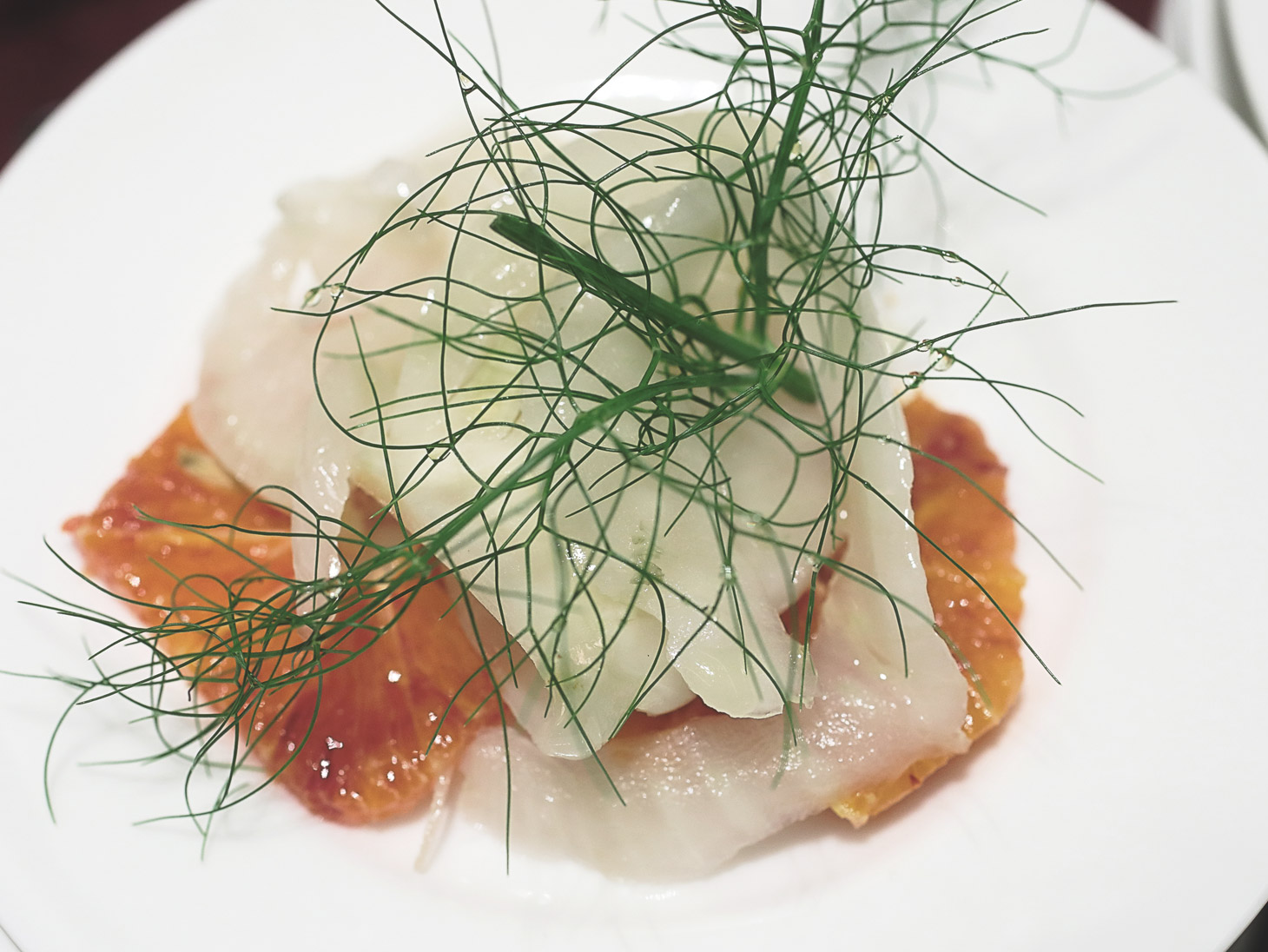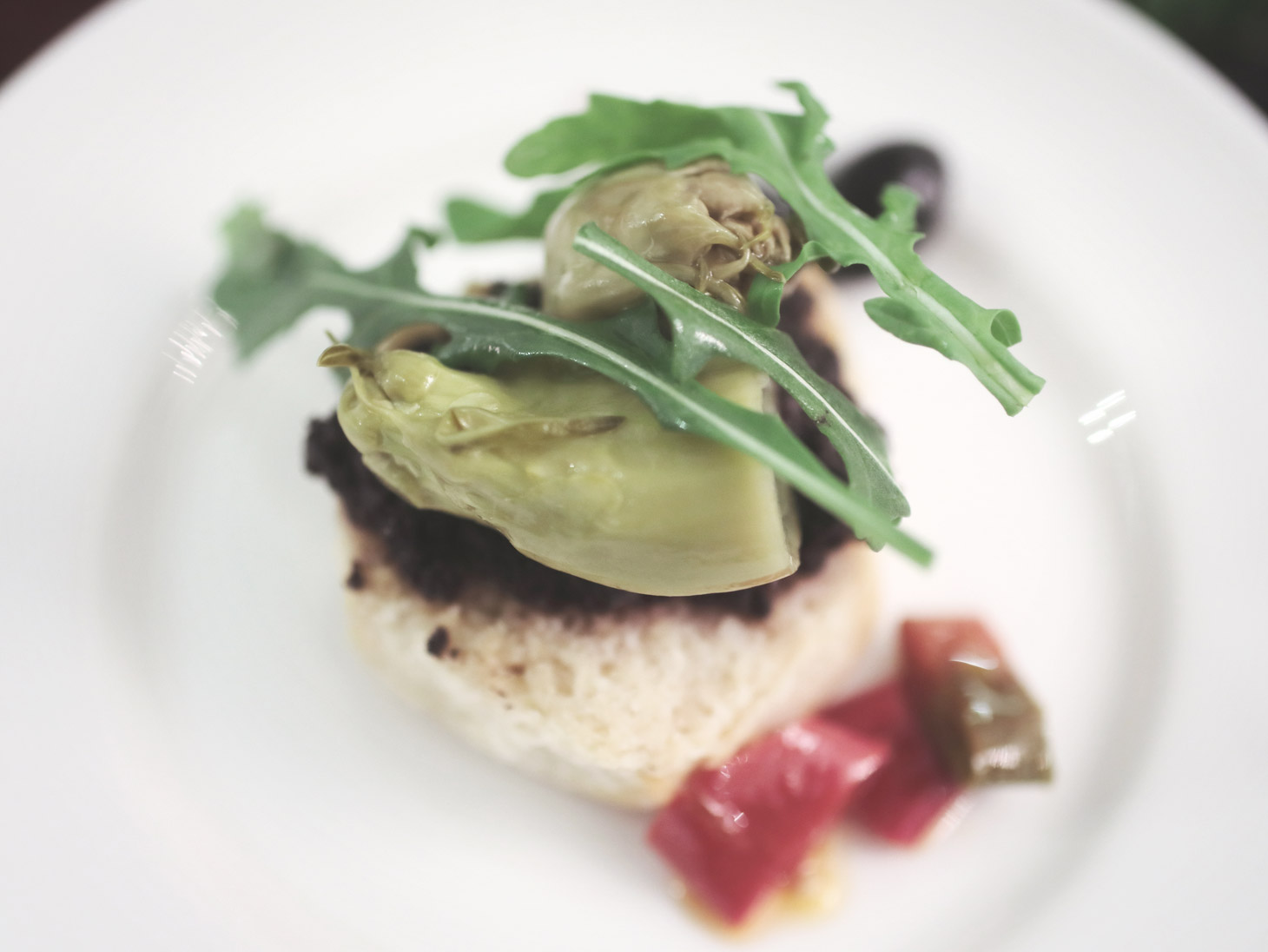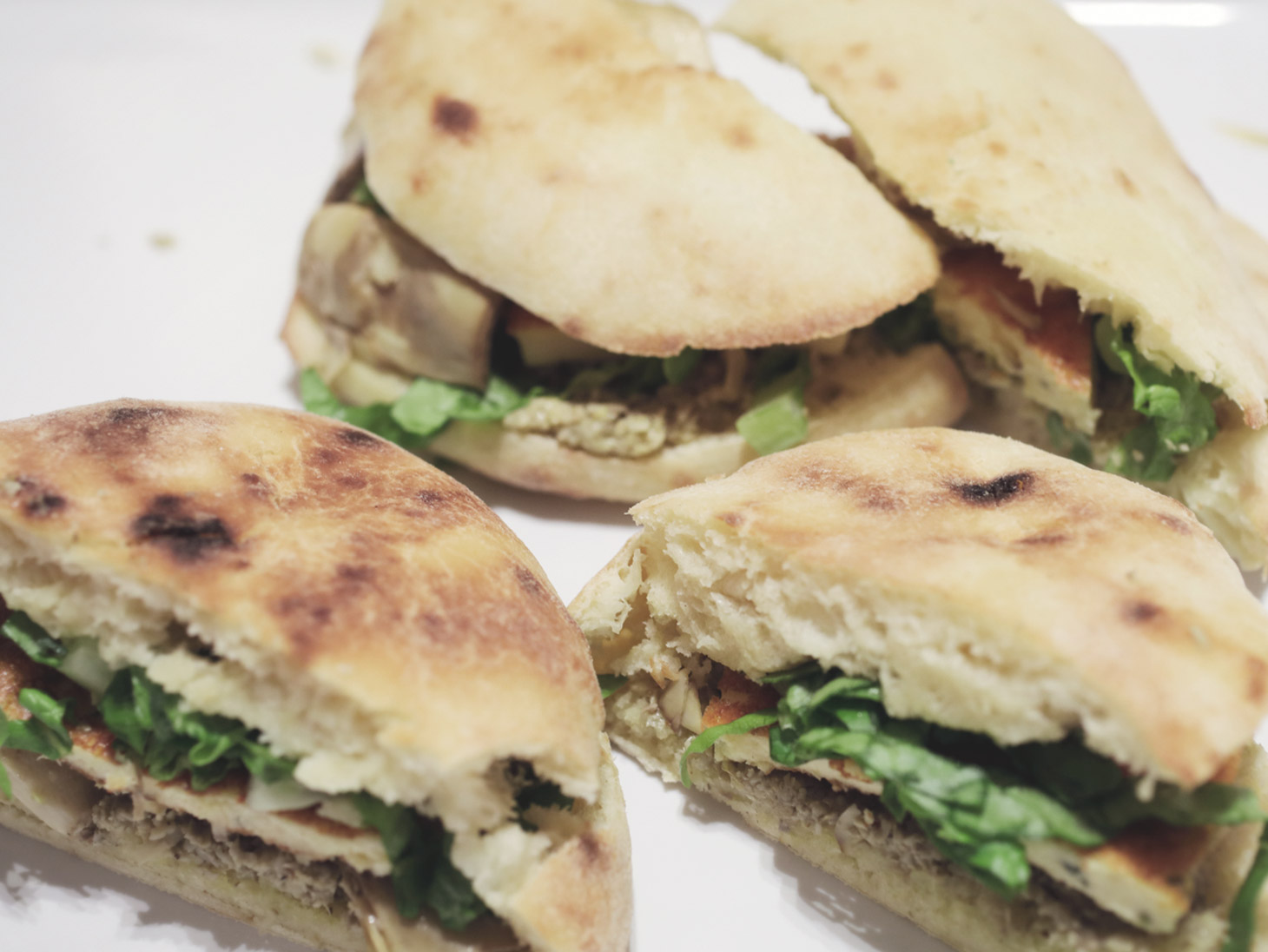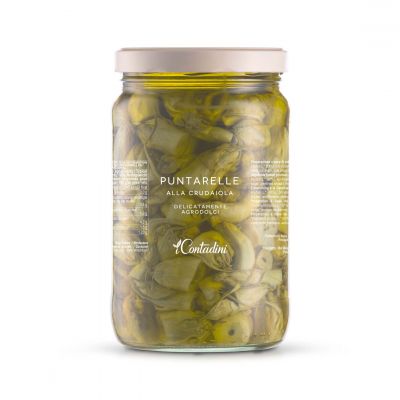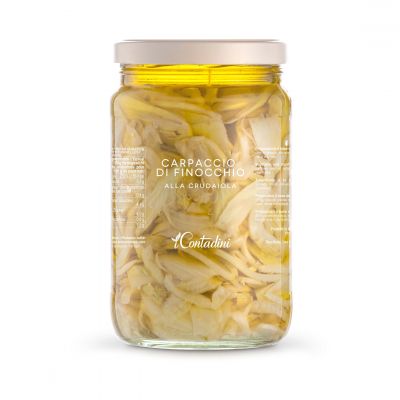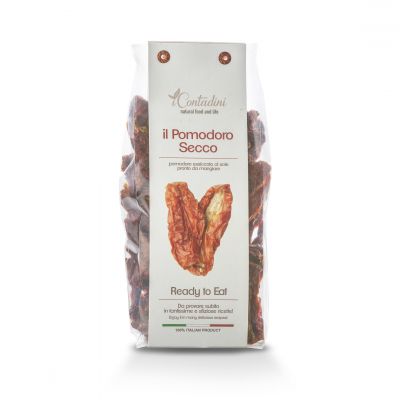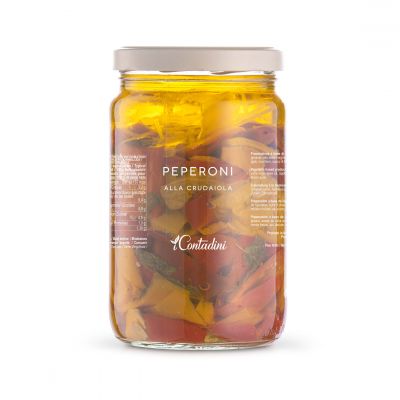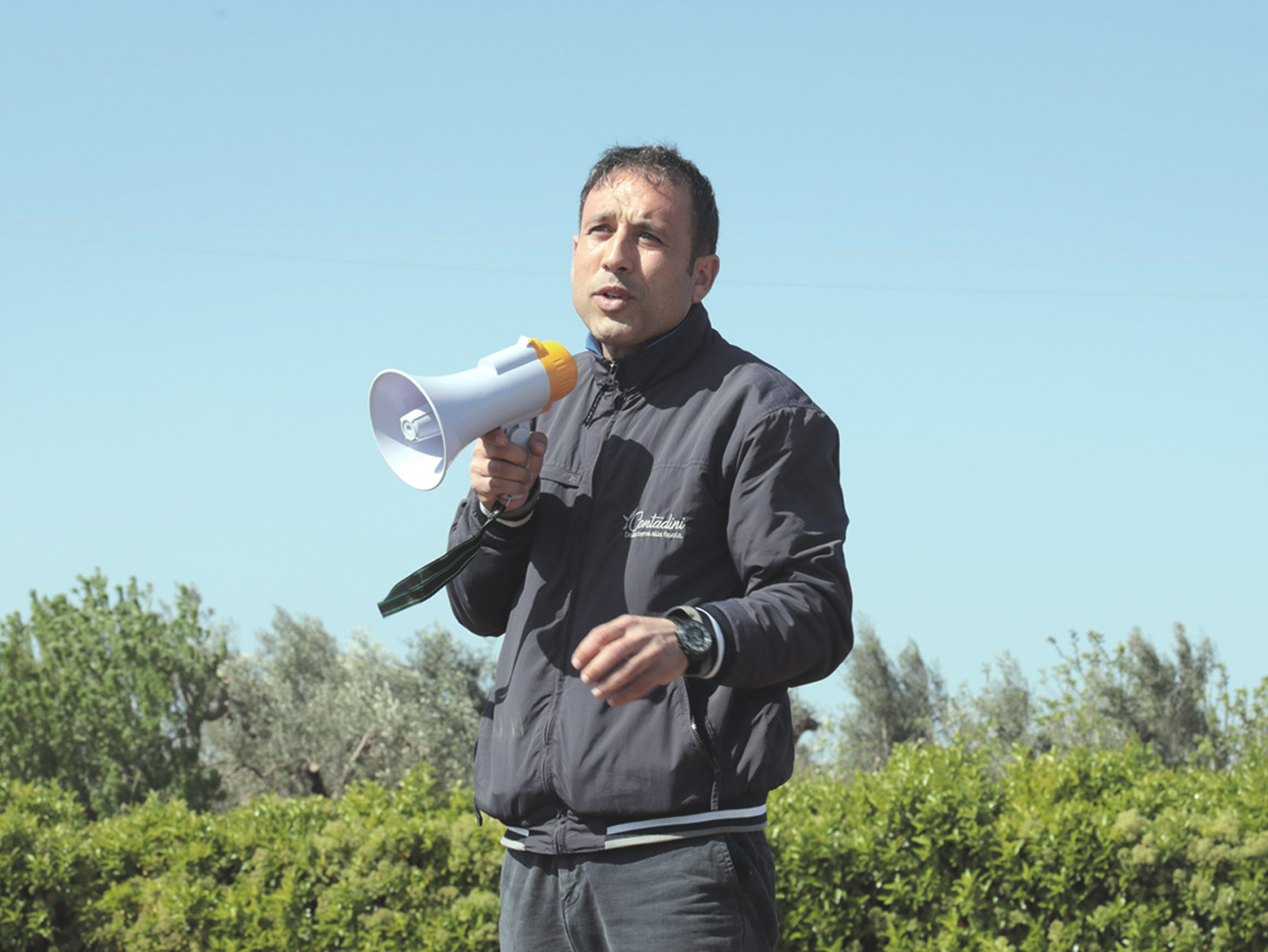
In April we’ve been in Salento for an educational journey where we had the chance to discover with our eyes all the different production phases of vegetables at “I Contadini” farm, especially artichokes.
Production chain, yes, because all vegetables at Contadini are produced internally, from planting to packaging of the final product.
Edoardo Trentin welcomed us in his company with a walking through a field of Racale capers that was sprouting and after some footsteps we reached the Brindisino artichocke field, the real autoctone variety. Our guide explained us that an artichoke plant grows in the same field for three years, of which the last two at full production. After this phase the field is dedicated to another type of crop suitable for the position of the plot or left even uncultivated.
Crop rotation allows the land to regenerate and continue to be fertile even in the following years: an ancient technique, which is based on the principles of integrated production, with low environmental impact. Edoardo reminds us of an old but wise way of saying: “if you respect the earth, the earth respects you” to emphasize the profound respect that he and his team have for their land and for the people who work it, a fundamental prerequisite for obtaining quality products.
After the manual harvesting phase in the field, which takes place from January to May or as long as temperatures permit, artichokes are selected by a calibrating machine which divides them by size. This is the beginning of the processing phase that takes place in the factory in a very short time from the harvest. Production is managed by Emanuele, brother of Edoardo: “Our women cut the artichokes with absolute precision with a small knife, eliminating the hard part and the outer leaves. In production we chose to employ only women”. All waste is then reused in the field, in an integrated production and waste reduction logic. Vegetables are then cooked in a solution of water, salt from Trapani, apple and lemon vinegar. The potting is made strictly by hand, to carry out a further control on the product, ensuring to use only the best artichokes. We had the opportunity to taste them just after cooking: really delicious! Finally, the jars are filled with extra virgin olive oil and sunflower oil, sealed and labelled, ready to be shipped. This is the reign of Gianna, Edoardo’s sister, who ensures that all the jars are packaged and wrapped appropriately for transport.
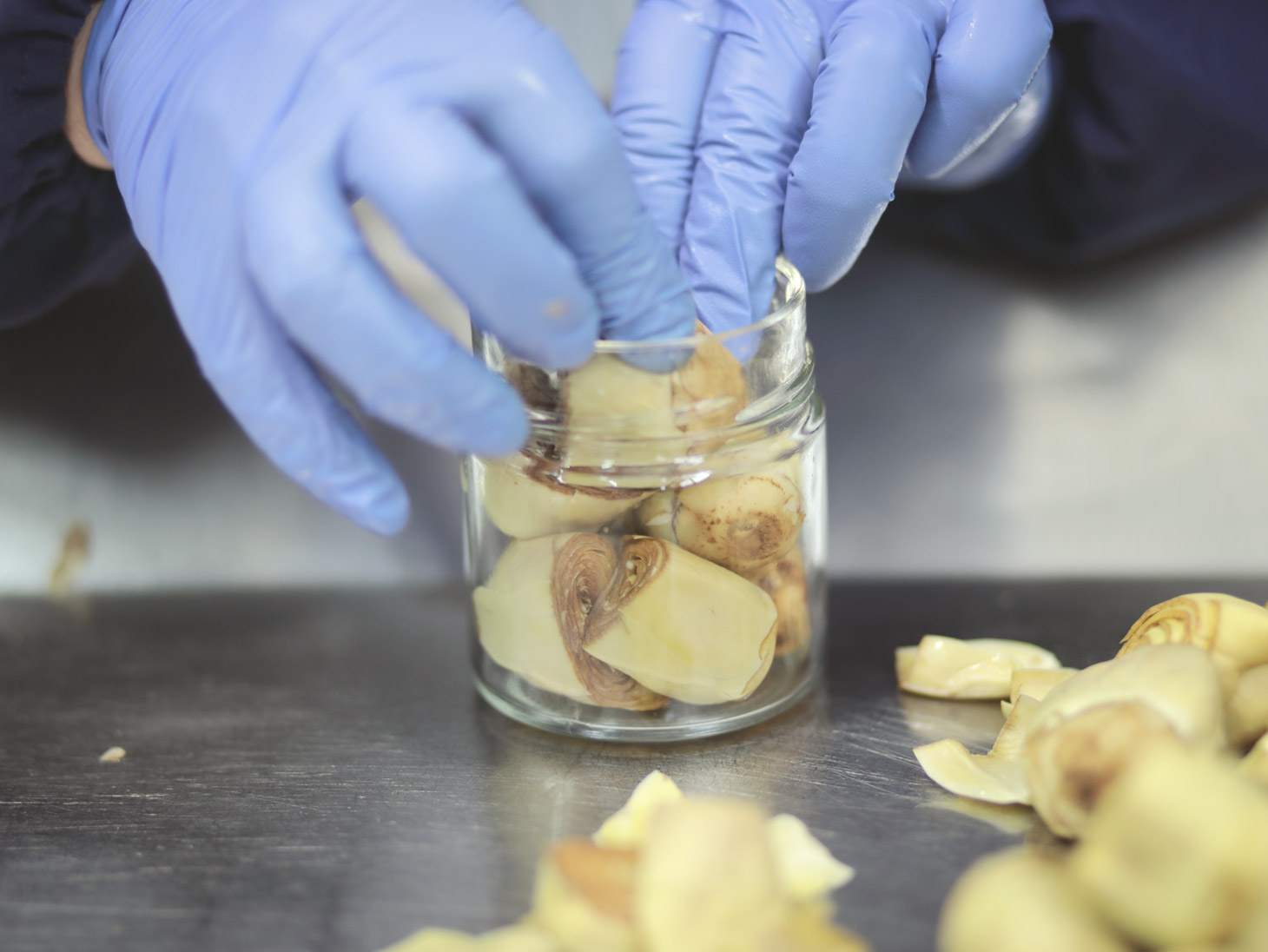
Our visit ended with a lunch at the farm, where we tasted the artichokes and some other typical product from Apulia, such as taralli and pasta with turnip tops (cime di rapa).
But if the visit to the farm came to the end, it was not the same for the welcoming reserved to us: after a walk along the promenade we had the opportunity to taste some new products and enjoy a fantastic dinner with Edoardo, Luciano, Alice and all the group of I Contadini. An amazing evening dedicated to cheerfulness, sharing and... to the “pizzica”, a popular Italian folk dance, part of the larger family of tarantella dances, hailing from Salento area. It has been really funny watching at some of our founders dancing the pizzica!
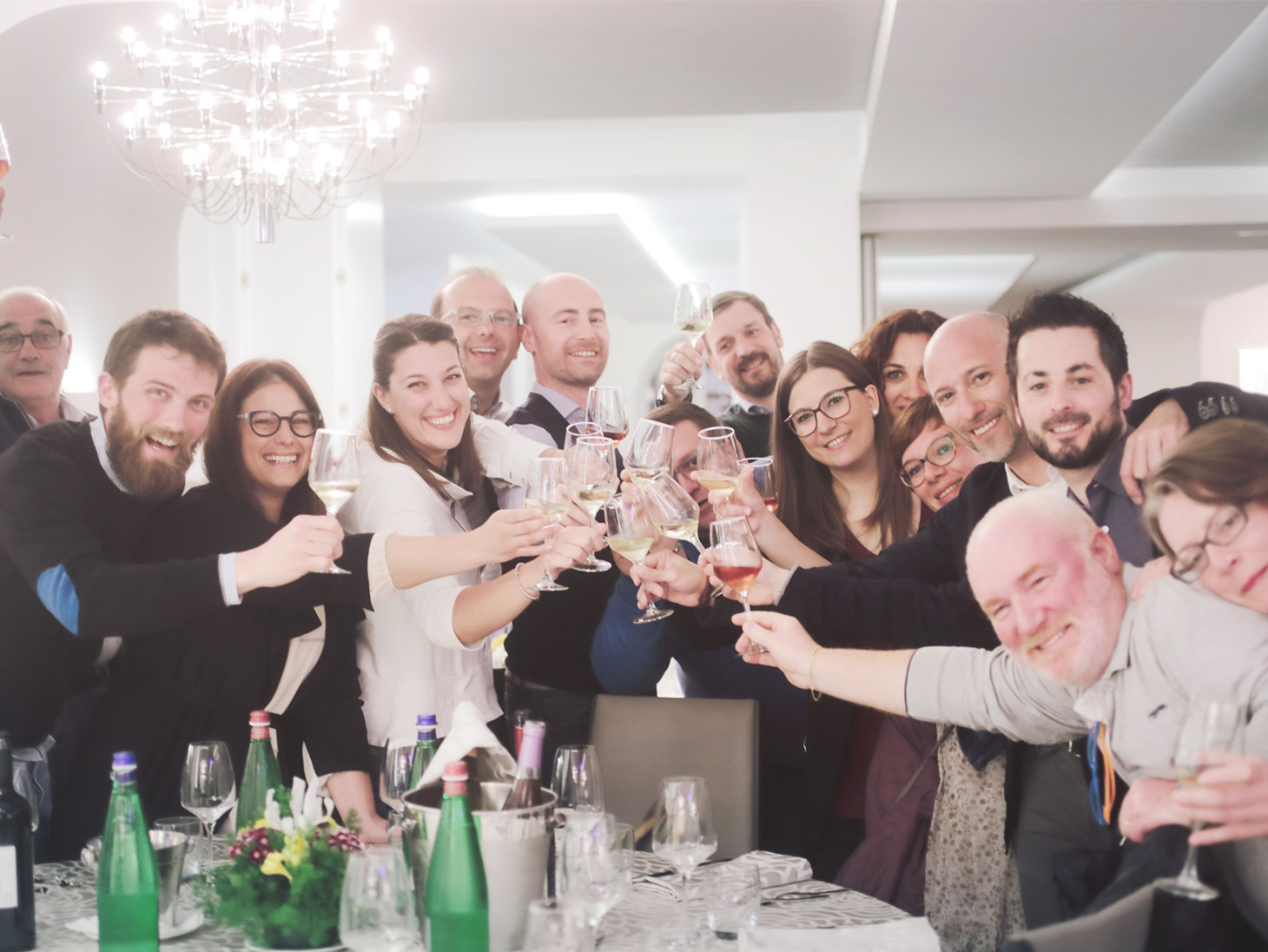
The Food Service Project
This trip to Salento allowed us to get to know the new and interesting Food Service project by I Contadini, dedicated to all professionals in the sector. The idea was to inspire preparations and dishes, starting from their products and combining them with Salento specialities; all made with the help of chef Tonino Piccolo.
In the Food Service project each product is declined in several original proposals, that can be easily adapted by different kinds of venues, from the bar to the restaurant. The “menu” of I Contadini is developed in four directions:
La Frisa: it was the bread of the fishermen, an emblem of the poor cuisine of Salento; it used to be wet directly in the sea water and seasoned with freshly squeezed tomatoes. It is a dough made with water, flour and baking powder, double cooked. To be soaked in water for few seconds, then seasoned and served.
La Puccia: symbol of Salento gastronomy, it is a naturally fermented bread, cooked in stone, cut, stuffed and baked to make it flavourful and crunchy. It is a street food with a great tradition in Apulia: Puccia is usually prepared for the feast of the Immaculate Conception, on December the 8th.
Antipastino: a simple, quick and tasty proposal, ideal for whetting your appetite or accompanying an aperitif.
The Kitchen: real dishes, more elaborate than the previous ones, that require longer preparation times and greater use of equipment.
We have tasted many interesting proposals, also made with some new products that you can discover below!
Giulia Bassetto
Marketing manager

